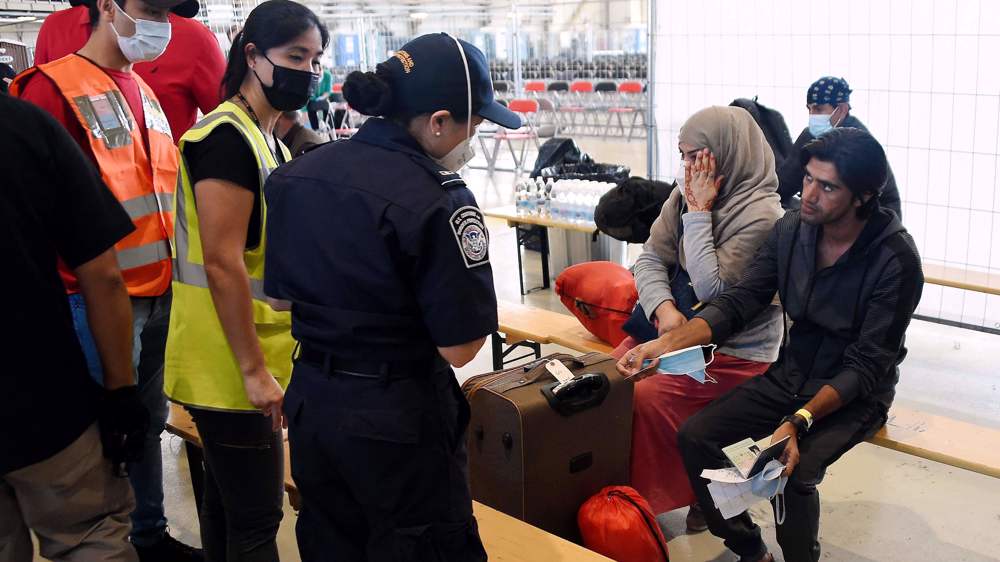Bavarian Minister President Markus Söder’s proposal for cities to accommodate more refugees to ease rural areas’ burden has met with resistance from mayors and the Bavarian Association of Cities, who warn of overloading urban infrastructure.
In an effort to alleviate rural areas, Bavarian Minister President Markus Söder (CSU) suggested that cities should take in more refugees. In an interview with the Süddeutsche Zeitung, Söder expressed his desire to shift more responsibility to cities, as rural communities face increasing opposition to planned refugee accommodations. “In smaller communities, housing 50 or 60 people is often a significant issue. In large cities, this is easier,” he stated.

Criticism and capacity concerns
However, the Bavarian Association of Cities sees significant risks in this proposed change. Association chief Markus Pannermayr (CSU) told the Deutsche Presse-Agentur that “in the large cities and many other towns and communities, the reception capacities are nearly exhausted, in some places fully.” He emphasized that integration depends on the availability of housing, childcare, and education—areas already strained in cities and larger municipalities. Pannermayr warned that changing the distribution key to require cities to take in more refugees than smaller towns would overwhelm urban areas. He reminded that efforts have been made to distribute refugees evenly across the 71 counties and 25 independent cities based on population share, which has generally succeeded with some effort. Yet, cities are already under significant strain.
Rural protests and urban pressures
Recent months have seen protests against asylum accommodations in rural areas, such as in Rott am Inn (Rosenheim district) and Warngau (Miesbach district). In Wolfratshausen, new asylum accommodations have been repeatedly rejected. Although the federal government assigns refugees to states, it is up to the states to distribute them to municipalities. A change in the Bavarian distribution key would mean more asylum seekers in independent cities. Söder mentioned that the Interior Ministry is already in talks with the city of Munich to adjust its relatively low intake quota compared to its size.
Mayors’ concerns about overload and fairness
Bavarian mayors have expressed limited enthusiasm for Söder’s proposal, citing fears of overload. Augsburg Mayor Eva Weber worries about an “imbalance,” asserting that her city already exceeds its required intake by nearly 24%. Similarly, Nuremberg’s Mayor Markus König reported that his city meets 136% of the required quota, while Munich falls below 100%. “We must ensure that no city shirks its responsibilities. Those not meeting the quota must be held accountable,” König told BR24.
The president of the Bavarian Association of Municipalities, Uwe Brandl (CSU), also voiced skepticism, noting that “micro-locations with 100 or 500 inhabitants should be carefully considered for suitability.” He warned against creating “hotspots” like in Augsburg, where there are already significant Syrian communities, and called for the state government to disclose current refugee accommodation figures in Bavarian municipalities.
Limited housing in Bavarian cities
Housing in Bavarian cities is limited. The 2022 census shows significantly lower vacancy rates in cities like Munich, Nuremberg, Regensburg, and Würzburg compared to the Bavarian average. Cities such as Ingolstadt and Nuremberg also have lower vacancy rates, though less pronounced. Conversely, cities have much higher proportions of immigrant populations. Cities like Schweinfurt, Ingolstadt, Augsburg, Nuremberg, and Munich have over 30% immigrant populations, whereas rural regions typically have much lower rates, around 9-10% in counties like Tirschenreuth, Bayreuth, Kronach, Freyung-Grafenau, Neustadt, Haßberge, or Bamberg.









